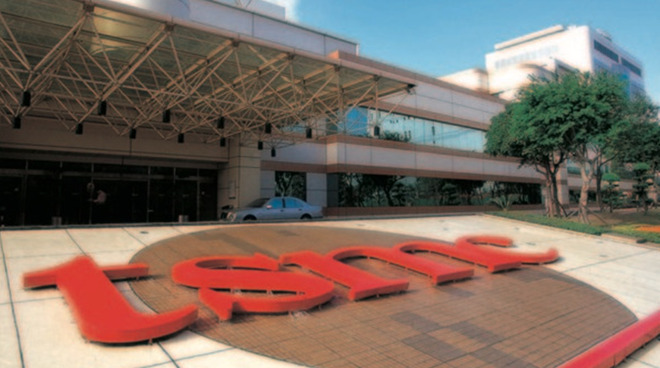Apple chip partner TSMC to start 5nm 'A14' production in mid-2020
TSMC is ready to begin manufacturing the "A14" chip intended for the late 2020 iPhone lineup starting in the second quarter of 2020.

The design infrastructure of the 5-nanometer chip was finalized in April 2019. Chips using the 5-nanometer EUV process stand to offer a 1.8-times logic density improvement and 15-percent speed gain on ARM Cortex-A72 cores over the 7-nanometer process.
TSMC also claims there is a better SRAM and analog area reduction by the architecture change, as well as benefiting from process simplification via the use of EUV lithography. Should the report be correct, this is consistent with chip production start in previous years for a fall iPhone release.
Extreme ultraviolet, or EUV, technology is an important addition to processor production, as it can make part of the process much cheaper compared to existing argon fluoride (ArF) immersion techniques. While ArF may require up to four expensive multi-patterning masks to create a layer, the use of ultraviolet lasers for chip etching requires just one mask.
TSMC will continue to be the sole manufacturer for the new chips, according to Digitimes. As much as two thirds of TSMC's available 5nm process capacity will be used to make next-generation iPhone chips.
The chips will likely be used in the next generation of Apple's iPhones, including the iPhone 12 and the rumored "iPhone SE 2."
In mid-April, TSMC posted a 32 percent drop in net profit to $2 billion for the first calendar quarter of 2019 -- the lowest since 2011.
While some of the profit decrease was caused by the global smartphone market slowdown, other factors were also at play. A chemical accident caused a loss of production in February, and the cryptocurrency slowdown cut back demand for chips from GPU manufacturers.

The design infrastructure of the 5-nanometer chip was finalized in April 2019. Chips using the 5-nanometer EUV process stand to offer a 1.8-times logic density improvement and 15-percent speed gain on ARM Cortex-A72 cores over the 7-nanometer process.
TSMC also claims there is a better SRAM and analog area reduction by the architecture change, as well as benefiting from process simplification via the use of EUV lithography. Should the report be correct, this is consistent with chip production start in previous years for a fall iPhone release.
Extreme ultraviolet, or EUV, technology is an important addition to processor production, as it can make part of the process much cheaper compared to existing argon fluoride (ArF) immersion techniques. While ArF may require up to four expensive multi-patterning masks to create a layer, the use of ultraviolet lasers for chip etching requires just one mask.
TSMC will continue to be the sole manufacturer for the new chips, according to Digitimes. As much as two thirds of TSMC's available 5nm process capacity will be used to make next-generation iPhone chips.
The chips will likely be used in the next generation of Apple's iPhones, including the iPhone 12 and the rumored "iPhone SE 2."
In mid-April, TSMC posted a 32 percent drop in net profit to $2 billion for the first calendar quarter of 2019 -- the lowest since 2011.
While some of the profit decrease was caused by the global smartphone market slowdown, other factors were also at play. A chemical accident caused a loss of production in February, and the cryptocurrency slowdown cut back demand for chips from GPU manufacturers.

Comments
This is where people like Elon Musk and Steve Jobs are needed, visionaries and dreamers, those that push the envelope, that ignore the 99%, and don't give a shxt about what others think of them. Bill Gates once said who will ever need more than 640K in a personal computer - we all know he is a fool (and buddy of Jeffrey Epstein). Microsoft has held back technology innovation for decades, Intel as well. If you want to hear a visionary and futurist speak about really cool, unbelievable stuff then watch interviews with Ray Kurzweil -- you will begin to feel that tech is not moving fast enough.
Plus, it's not all about speed. Power performance, size, interfaces, all of them make for a better product.
Looks like the other 2 commenters misunderstood GeorgeBMac's post and you seem to have asked the right question. The speed limit that George talks about is coming from the software which is being run on the hardware. The software has NOT developed as much as hardware in the last 10 years, to the point where further development in hardware looks redundant, at least in the short term.
I am just guessing here, may be George can clarify if my assumption is correct.
More to the point, Apple benefits from lower die costs for the A14 SoC, and also from not having to reengineer the SE even every other year, but maybe every three years, and it would still be performant enough for the target market.
As someone who values the iPad Pro more than the iPhone, I would like to see the enhanced CPU (x) of the top iPad Pro be in line with the Phones.
Actually you can use the analogy. In order to develop high performing autos, new techniques and technology are developed, which, yes, make their way back down to consumer grade vehicles. There was even a car commercial telling this very story years ago.
But you go first, I don’t want to step in anything.
PS: Doesn’t the iPhone 11 Pro Max have 4 GiB RAM? If so, could you really see it getting 16 GiB fo a 2019 release year? That seems like it would take up space which likely means reducing the batter size and using more power, and while the iPhone 11 Pro Max has the battery life of any iPhone is the gain in one area outweigh the loss in the others? The most popular Macs are still shipping with 8 GiB.